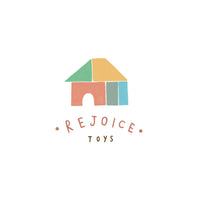Life Cycle - Frog
{"id":4511103680572,"title":"Life Cycle - Frog","handle":"life-cycle-frog","description":"\u003cmeta charset=\"utf-8\"\u003e\n\u003cul\u003e\n\u003cli\u003eLife begins amid a clutch of floating eggs. Those that survive hatch as tadpoles, and then undergo a rapid change as they lose their gills and grow legs. Life in the water is grand, but these amphibians will soon take to land, becoming adult frogs after 12 to 16 weeks.\u003c\/li\u003e\n\u003cli\u003e\n\u003cstrong\u003eScientific Name:\u003c\/strong\u003e Anura\u003c\/li\u003e\n\u003cli\u003e\n\u003cstrong\u003eCharacteristics:\u003c\/strong\u003e Unlike the distinct stages that many insects cycle through, these figures show the rapid transition a frog makes from egg to adult. Young tadpoles are often mistaken for fish because they move so quickly in the water!\u003c\/li\u003e\n\u003cli\u003e\n\u003cstrong\u003eSize and Colour:\u003c\/strong\u003e Maybe it is easy being green! These lifelike, soft figures show the shifting shades of a frog, complete with the 2-inch-long adult.\u003c\/li\u003e\n\u003cli\u003eThe Life Cycle of a Frog is part of the Safariology® collection.\u003c\/li\u003e\n\u003cli\u003eAll of our products are Non-toxic and BPA free.\u003c\/li\u003e\n\u003c\/ul\u003e\n\u003cp\u003e\u003cstrong\u003eHistory\u003c\/strong\u003e\u003c\/p\u003e\n\u003cp\u003eThere are perhaps 3,500 different species of frog alive today, on all continents but Antarctica, making frogs the most numerous amphibian. The word “amphibian,” incidentally, means “double life,” which refers to frogs living part of their lives in water and part on land. Frog-like fossils have been found in Triassic era rocks, which means frogs observed the complete rise and fall of dinosaurs and yet still exist today.\u003c\/p\u003e\n\u003cul\u003e\n\u003cli\u003eRecommended Age: 4+\u003c\/li\u003e\n\u003cli\u003eSize in cm: 19.5 W x 23 H\u003c\/li\u003e\n\u003cli\u003eSize in inches: 7.68 W x 9.06 H\u003c\/li\u003e\n\u003c\/ul\u003e","published_at":"2020-04-28T15:48:12+10:00","created_at":"2020-04-28T22:14:48+10:00","vendor":"HHQ","type":"Learning Resources","tags":[],"price":1995,"price_min":1995,"price_max":1995,"available":true,"price_varies":false,"compare_at_price":1995,"compare_at_price_min":1995,"compare_at_price_max":1995,"compare_at_price_varies":false,"variants":[{"id":32017830641724,"title":"Default Title","option1":"Default Title","option2":null,"option3":null,"sku":"","requires_shipping":true,"taxable":false,"featured_image":null,"available":true,"name":"Life Cycle - Frog","public_title":null,"options":["Default Title"],"price":1995,"weight":200,"compare_at_price":1995,"inventory_management":"shopify","barcode":"","requires_selling_plan":false,"selling_plan_allocations":[]}],"images":["\/\/www.rejoicetoys.com.au\/cdn\/shop\/products\/2691.jpg?v=1588076089","\/\/www.rejoicetoys.com.au\/cdn\/shop\/products\/2691_1.jpg?v=1588076089"],"featured_image":"\/\/www.rejoicetoys.com.au\/cdn\/shop\/products\/2691.jpg?v=1588076089","options":["Title"],"media":[{"alt":null,"id":6522719699004,"position":1,"preview_image":{"aspect_ratio":1.0,"height":500,"width":500,"src":"\/\/www.rejoicetoys.com.au\/cdn\/shop\/products\/2691.jpg?v=1588076089"},"aspect_ratio":1.0,"height":500,"media_type":"image","src":"\/\/www.rejoicetoys.com.au\/cdn\/shop\/products\/2691.jpg?v=1588076089","width":500},{"alt":null,"id":6522719731772,"position":2,"preview_image":{"aspect_ratio":1.0,"height":500,"width":500,"src":"\/\/www.rejoicetoys.com.au\/cdn\/shop\/products\/2691_1.jpg?v=1588076089"},"aspect_ratio":1.0,"height":500,"media_type":"image","src":"\/\/www.rejoicetoys.com.au\/cdn\/shop\/products\/2691_1.jpg?v=1588076089","width":500}],"requires_selling_plan":false,"selling_plan_groups":[],"content":"\u003cmeta charset=\"utf-8\"\u003e\n\u003cul\u003e\n\u003cli\u003eLife begins amid a clutch of floating eggs. Those that survive hatch as tadpoles, and then undergo a rapid change as they lose their gills and grow legs. Life in the water is grand, but these amphibians will soon take to land, becoming adult frogs after 12 to 16 weeks.\u003c\/li\u003e\n\u003cli\u003e\n\u003cstrong\u003eScientific Name:\u003c\/strong\u003e Anura\u003c\/li\u003e\n\u003cli\u003e\n\u003cstrong\u003eCharacteristics:\u003c\/strong\u003e Unlike the distinct stages that many insects cycle through, these figures show the rapid transition a frog makes from egg to adult. Young tadpoles are often mistaken for fish because they move so quickly in the water!\u003c\/li\u003e\n\u003cli\u003e\n\u003cstrong\u003eSize and Colour:\u003c\/strong\u003e Maybe it is easy being green! These lifelike, soft figures show the shifting shades of a frog, complete with the 2-inch-long adult.\u003c\/li\u003e\n\u003cli\u003eThe Life Cycle of a Frog is part of the Safariology® collection.\u003c\/li\u003e\n\u003cli\u003eAll of our products are Non-toxic and BPA free.\u003c\/li\u003e\n\u003c\/ul\u003e\n\u003cp\u003e\u003cstrong\u003eHistory\u003c\/strong\u003e\u003c\/p\u003e\n\u003cp\u003eThere are perhaps 3,500 different species of frog alive today, on all continents but Antarctica, making frogs the most numerous amphibian. The word “amphibian,” incidentally, means “double life,” which refers to frogs living part of their lives in water and part on land. Frog-like fossils have been found in Triassic era rocks, which means frogs observed the complete rise and fall of dinosaurs and yet still exist today.\u003c\/p\u003e\n\u003cul\u003e\n\u003cli\u003eRecommended Age: 4+\u003c\/li\u003e\n\u003cli\u003eSize in cm: 19.5 W x 23 H\u003c\/li\u003e\n\u003cli\u003eSize in inches: 7.68 W x 9.06 H\u003c\/li\u003e\n\u003c\/ul\u003e"}

